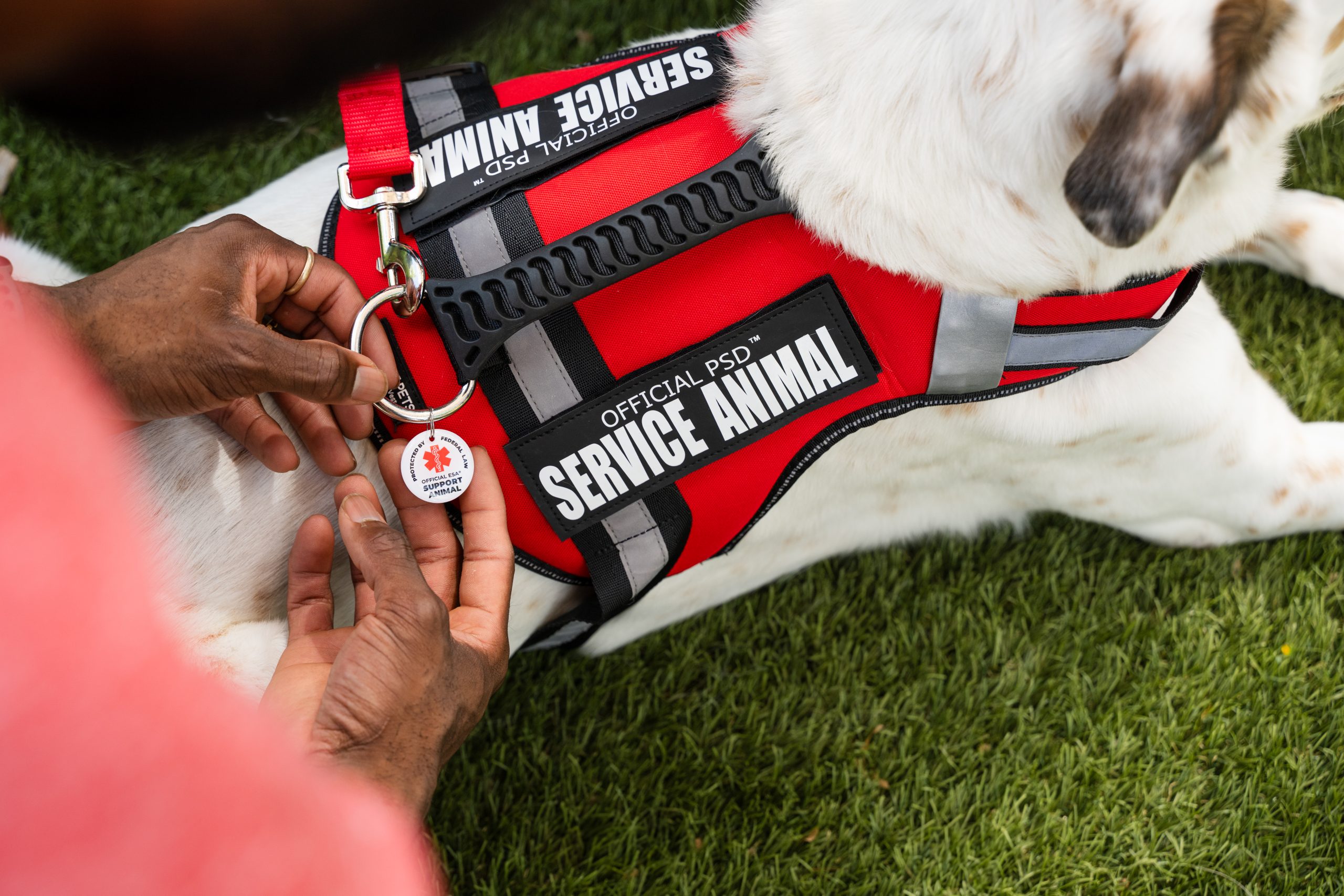Order includes Free:
ESA Fastpass® ID & Televet Services
An Emotional Support Animal is more than a pet; it is a companion prescribed by a licensed mental‑health professional to help its handler manage a diagnosed psychological or emotional disability. Unlike a service dog trained to perform tasks or a therapy dog that visits hospitals and schools, an ESA’s value lies in its calming presence, predictable routine, and unconditional affection. With the right documentation—a valid ESA letter—an assistance animal unlocks federal housing protections that ordinary pets do not receive.
An Emotional Support Animal (ESA) is a companion formally recommended by a licensed mental‑health professional because the animal’s steady presence eases at least one symptom of a documented psychological or emotional disability. With an ESA letter, your pet becomes an assistance animal under the Fair Housing Act. This gives you housing rights that pets normally don’t have.
Legally, an ESA is defined by two criteria:
No federal law limits ESA species, size, or special training. Many people have dogs, cats, rabbits, birds, or other pets as ESAs – as long as the animal is safe, well-behaved, and doesn’t cause problems for housing providers.*
*Support Pets offers ESA letters for dogs and cats only.
Terminology around assistance animals is a maze that frustrates would‑be owners and landlords alike, so clarity is vital.
Provide comfort & emotional regulation to one handler
Perform specific tasks for a person with a disability (guide, alert, retrieve)
Offer general comfort to groups (patients, students)
Basic obedience only; training not required although recommended
Extensive, task‑specific training (often 1–2 years)
Basic obedience & temperament screening
Housing protections under the Fair Housing Act (FHA); allowed in some places, depending on rules
Full public‑access rights under ADA; free air travel if PSD
Venue‑by‑venue permission
ESA letter from any licensed doctor
Task certification not legally required but often provided
No registration required but strongly recommended
Because popular media often blur these categories, countless landlords mistakenly treat ESAs as ordinary pets or, conversely, expect them to have the same rights as ADA‑protected service dogs.

Anecdotes abound, but data matters. Over the past decade, peer‑reviewed studies have quantified the effects ESAs can have on mental health markers:
While an ESA is not a cure, these incremental gains often bridge the gap between clinical treatment and day‑to‑day functioning.
If you think an animal could help with your anxiety, mood, or stress, the next step is seeing if you qualify. The process is simpler than many assume:
Many different emotional or mental health challenges may qualify a person for an ESA. This includes common issues like anxiety, depression, stress, trouble focusing, or fear of certain situations. What matters most is whether the condition affects your daily life.
You can gauge eligibility in three minutes through our secure screener:
For more specific criteria, see our dedicated page: Who qualifies for an ESA?
An ESA letter is your passport to housing protection and, in some states, workplace flexibility. Below is a narrative walk‑through of each stage, no jargon, no loopholes.
For deeper legal nuance, we keep a living guide: Doctor ESA letter.

Legislation shifts, but three pillars remain constant:
Support Pets monitors quarterly HUD memos and airline rule changes, updating our letter templates and customer alerts accordingly. Bookmark our ESA Laws page for live updates.
Landlords can check your paperwork but can’t ask about your medical condition. They may request:
Landlords cannot charge pet rent, deposits, or limit ESA animals based on breed or size when a valid ESA letter is provided. Damage fees still apply if the animal causes measurable harm.
Clarify fees:
ESAs lack blanket employment rights. Still, under the Americans with Disabilities Act interactive process, many HR departments consider case‑by‑case arrangements. You can share your letter and explain how your pet will stay calm, clean, and quiet at work.
If you’re renting an apartment or house near school, many landlords follow Fair Housing Act rules and allow emotional support animals with the right paperwork. An ESA letter from a licensed provider helps protect your right to live with your pet, even if the building normally has a “no pets” policy. Some landlords may ask to review your letter and pet information before move-in.*
*Support Pets offers ESA letters for dogs and cats only.
Restaurants, hotels, malls: entry is discretionary. Courteous advance calls often win cooperation. Carry a printed letter or phone screenshot to ease gatekeeper concerns.
An ESA’s impact isn’t species‑specific; it’s chemistry between human and animal. Nevertheless, a few guidelines improve success:
*Support Pets offers ESA letters for dogs and cats only.
The ASPCA estimates that 3.2 million shelter animals are adopted each year. Adopting from a shelter saves a pet’s life and helps you find one that’s already been tested for behavior. Shelter staff can confirm whether a dog tolerates loud noises, strangers, or other pets—traits that predict public‑space success.

Nationwide database; temperament filters
Behaviour‑assessed dogs & cats; adoption counselling
Moves pets from high‑kill shelters to adoption hubs
For an in‑depth look at species pros and cons, visit our Emotional Support Pets page.
Where genuine need exists, opportunists follow. Red flags include:
Trust but verify: after you get your ESA letter, you can look up your provider’s license online.
Potentially. Your licensed practitioner must document why each additional animal addresses a distinct need.
Not always. HUD allows “species‑only” letters, but adding name and weight can smooth landlord approvals.
Yes, provided they are safe, non‑venomous, and housed appropriately. Some landlords may accept other animals, but that depends on their rules. Support Pets only provides ESA letters for dogs and cats.
Only if your animal causes *actual* damage (chewed doorframe, stained carpet). Pre‑empt issues with routine grooming and crate training.
No. They may verify the letter’s authenticity but cannot request private charts or prescription lists.
Ready to experience calmer mornings and more stable moods?
Click below, complete our secure online questionnaire, and receive your ESA letter—often within 24-48 hours.